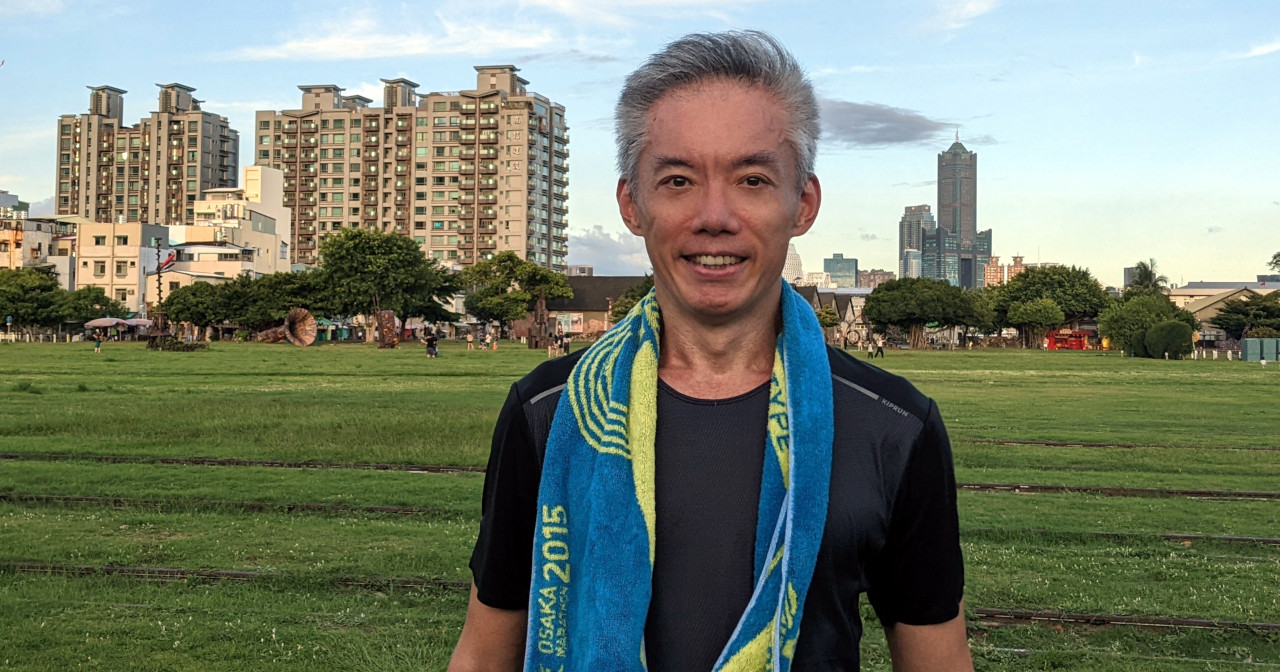Original link: https://taiwan.chtsai.org/2022/08/24/chixu_yundong_qi_nian_ji/
365th week of continuous movement, seven years. A total of 3,039 times, 2,078 hours. Average weekly 8.3 times, each 41 minutes. In the seventh year, the proportion of various types of sports to the total hours is roughly 61% for running, 29% for strength training, 5% for walking, and 5% for cycling.

The COVID-19 outbreak has accounted for nearly three of the seven years of the continuous campaign. This is a health crisis and a life crisis. Health is threatened by an unfamiliar virus, and life has changed dramatically.
The maintenance of athletic discipline is the first challenge. When the epidemic is severe, mask regulations for outdoor activities and restrictions on entry and exit of sports venues will interrupt the habits established before the epidemic. But in any case, it is necessary to maintain at least 30 minutes of sufficient intensity exercise at least three times a week.
The next thing to think about is what “can’t” compromise. Athletic performance can be compromised. When the training volume is reduced, the physical fitness and performance will inevitably decline. No problem, you will be able to practice again in the future. But the training intensity still needs to be high enough to promote health. Especially in the face of a health crisis, health cannot be compromised.
In other words, before the epidemic, we focused on enjoying sports and promoting health by the way. But over the past two years, I’ve been thinking about health more often. Not only hygiene habits and vaccinations, but also the adjustment of the focus of exercise. For example, avoid overtraining inadvertently injuring or affecting immunity.
Looking back at this time when we are about to enter the post-epidemic period, I feel that the exercise discipline of the past two years has been from the initial imbalance to the later rebalancing: taking health as the axis, rebuilding the balance between movement and stillness, as well as training and life .
Just four full doses of the COVID-19 vaccine this past year. The first dose in July last year (AZ), the second dose in October (AZ); the third dose in January (Moderna), and the fourth dose in July (Novavax). It’s also part of training.
When talking about “health” in the past, many people would think of “health preservation” or “maintenance”. But health comes from taking the initiative to take moderate risks and training, not from maintenance. If you only avoid risk from beginning to end, it will only become more and more unhealthy. As individuals, so do policies.
In the past year, many people have seen excessive fear of the extremely low risk of vaccination, and even insisted on not taking non-a certain brand of vaccine. At the same time, they allow themselves to maintain an unhealthy lifestyle, which increases the risk of infection and various acute and severe diseases. One by one, the risk is higher in the end.
If you really want to stick to your health, you should stick to the things that actively promote your health: good sleep, regular exercise, and the right diet. Train yourself to eat healthy foods and avoid unhealthy ones. It doesn’t matter what you like to eat. The more you eat the right food, the more you will get used to it and like it.
Health is not easy to maintain. Only vigorous exercise (moderate to high intensity relative to your current physical capacity) is sufficient to maintain health. No matter how old you are, it is about maintaining a positive training attitude and action for a lifetime.
Don’t think that health is an “elderly topic”. In the past, people were young and rotten, consumed in middle age, and only cared about health when they were old. There are not many days to come anyway. In today’s ageing age, it is imperative to live a very healthy life when you are young.
Especially under the trend of universal health insurance and aging, an unhealthy life should not be an option no matter how young you are. You certainly still have the freedom to live an unhealthy life. But that freedom only creates a burden on others, and your own future.
Further reading
This article is reprinted from: https://taiwan.chtsai.org/2022/08/24/chixu_yundong_qi_nian_ji/
This site is for inclusion only, and the copyright belongs to the original author.